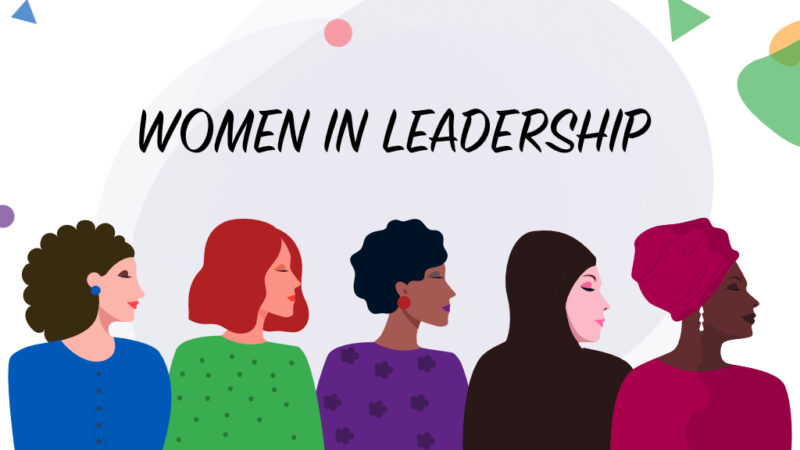BY ENDURANCE OKON
The call for women to increasingly thrust their way into leadership positions, breaking barriers and challenging traditional gender roles in the workplace has continued to take the centre stage, with stakeholders saying their participation in politics will enhance inclusivity and strengthen democracy.
Over the years, there have been a dearth of women participation in politics across Nigeria. This could be as a result of fear on the part of the women themselves, Religious and cultural norms, un-favourable environment for their participation, stereotype, political structures, as well as historical gender biases among others.
According to the World Economic Forum’s Global Gender Gap Report 2023, Nigeria ranks 118th out of 146 countries in terms of gender parity, while some countries in sub-Saharan Africa have made significant strides toward gender equality in politics and businesses.
The story in Akwa Ibom is no different. Despite the efforts of the State Governor, Pastor UMO ENO to ensure that women are fully represented at the local government level, as could be seen in the 2024 state council elections, the state continues to lag behind in terms of female representation in political and leadership roles.
In 2023, only 7 women were elected to the Akwa Ibom State House of Assembly, a stark contrast to the 26 men holding similar positions. On the national stage, women in the Nigerian National Assembly make up only about 6% of the total representation, a figure that is far from the 35% target set by the African Union in its gender parity goals.
In chat with the Member Representing Uruan State Constituency in the Akwa Ibom State House of Assembly, Hon. ITORO-OBONG ETIM, during a gathering to discuss the way forward for women’s participation in politics, the lawmaker decried the challenges women face as a result of place of birth as well as place of marriage.
she highlighted that most women are denied the opportunity to participate in politics in their own town on the account that they have been married out, and when they go to where they are married, they will be told they are not bonafide indigenes. Hon. ITORO-OBONG, as a way to addressing these issues, advocated for the National Assembly to enact laws that will intentionally provide seats for women without being hindered by any factor associated with place of origin or marriage.
Another promoter of women in politics, FELICIA ROBERT, maintained that despite the growing recognition of women’s contributions to the nation’s development, a significant gap remains in their representation in governance, politics, and corporate leadership. In her words “this underrepresentation not only limits the potential of women but also hinders Nigeria’s pursuit of sustainable and inclusive growth”.
Speaking on the limitations to women’s participation in leadership, another advocate, Dr. UDY AKPAN called for a favourable environment for women to participate in politics. “When we have a political meeting at 2am and a woman that is vying for a political position is married with kids, would she leave her husband and attend a meeting at 2am?”
Suffice it therefore to say that, political structures in Nigeria are often male-dominated. This obstacle makes it difficult for women to break through the glass ceiling and secure roles in government and leadership positions.
Research shows that nations with more gender-diverse leadership tend to experience better governance, improved economic performance, and more inclusive development outcomes. This is as women’s leadership styles are often characterized by collaboration, inclusivity, and a focus on social issues such as healthcare, education, and poverty alleviation—areas that are vital for the overall wellbeing of a society.
To address the gender gap in leadership, concerted efforts must be made at all levels of governance, from the grassroots to the federal government. There is a need for greater advocacy for gender-sensitive policies, the creation of gender quotas in political positions, and the establishment of laws that promote women’s rights and safety.
Here, a counselor in Ibesikpo-Asutan legislative council, Hon. IDONGESIT MICAH, emphasized the need to create a pathway for women to participate in politics, stressing that education andconsistence mentorship plays a vital role in women’s growth.
Also, the Vice Chairman of Ika Local Government Area, Hon. EMAEDU INYANG, recommended leadership training for women at the grassroot. She also urged those already in leadership positions to continue to serve as role models and mentors for the next generation.
On his part, the Chairman of the Nigeria Union of Journalists (NUJ), Akwa Ibom Council, Comrade AMOS ETUK, urged women to unite and support themselves. He noted that most women will prefer supporting men candidate than their folks
Meanwhile, the gap in women’s representation in leadership and governance remains a critical issue in Akwa Ibom and Nigeria as a whole. However, with continued advocacy, policy reforms, and an increasing number of women breaking barriers, the future looks promising.
Women’s participation in leadership is not only a matter of fairness but also one of national progress. As more women rise to positions of power, Nigeria will be better positioned to achieve its full potential, ensuring that all voices are heard, and all citizens—regardless of gender—can benefit from inclusive governance and decision-making.








